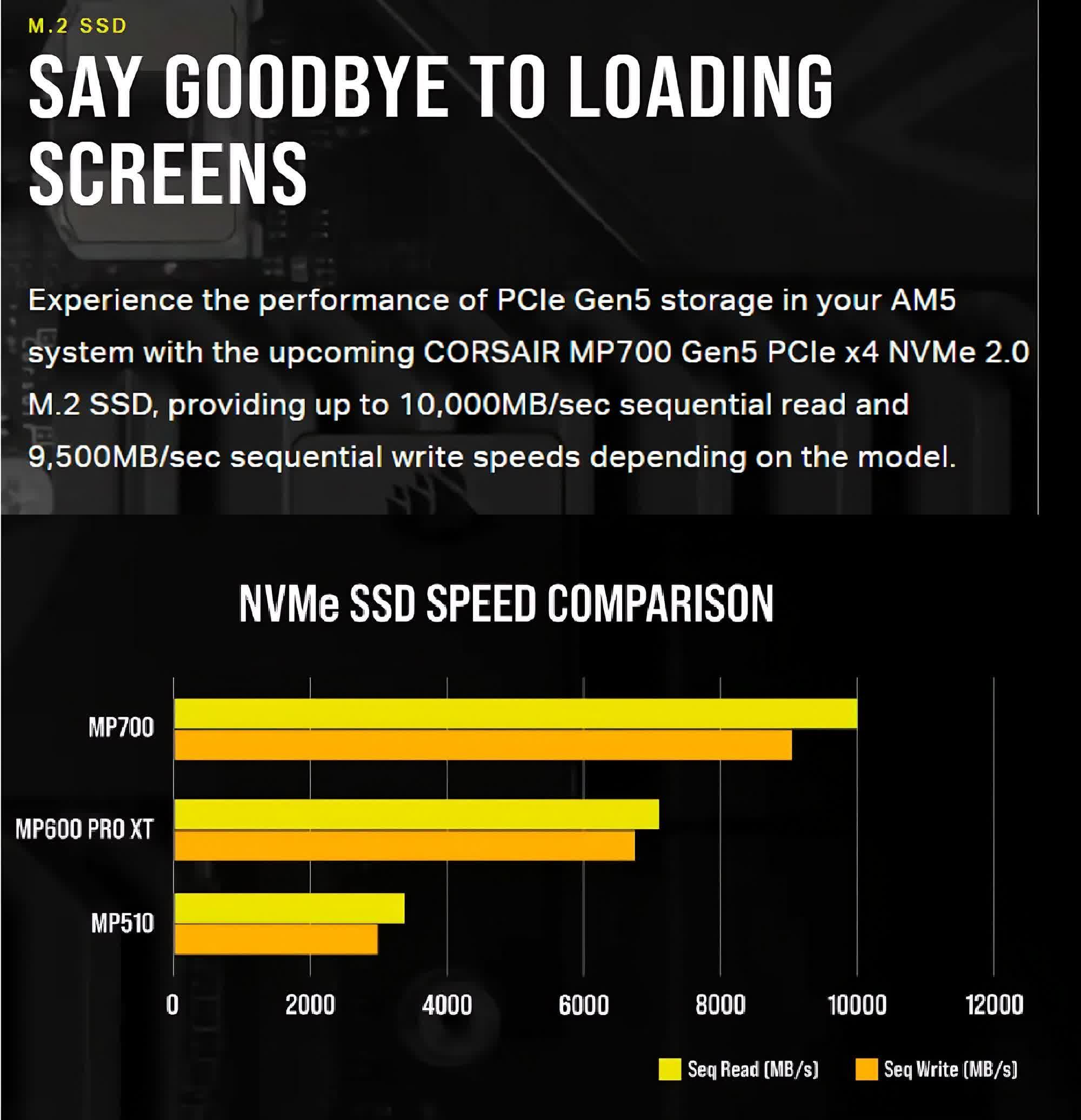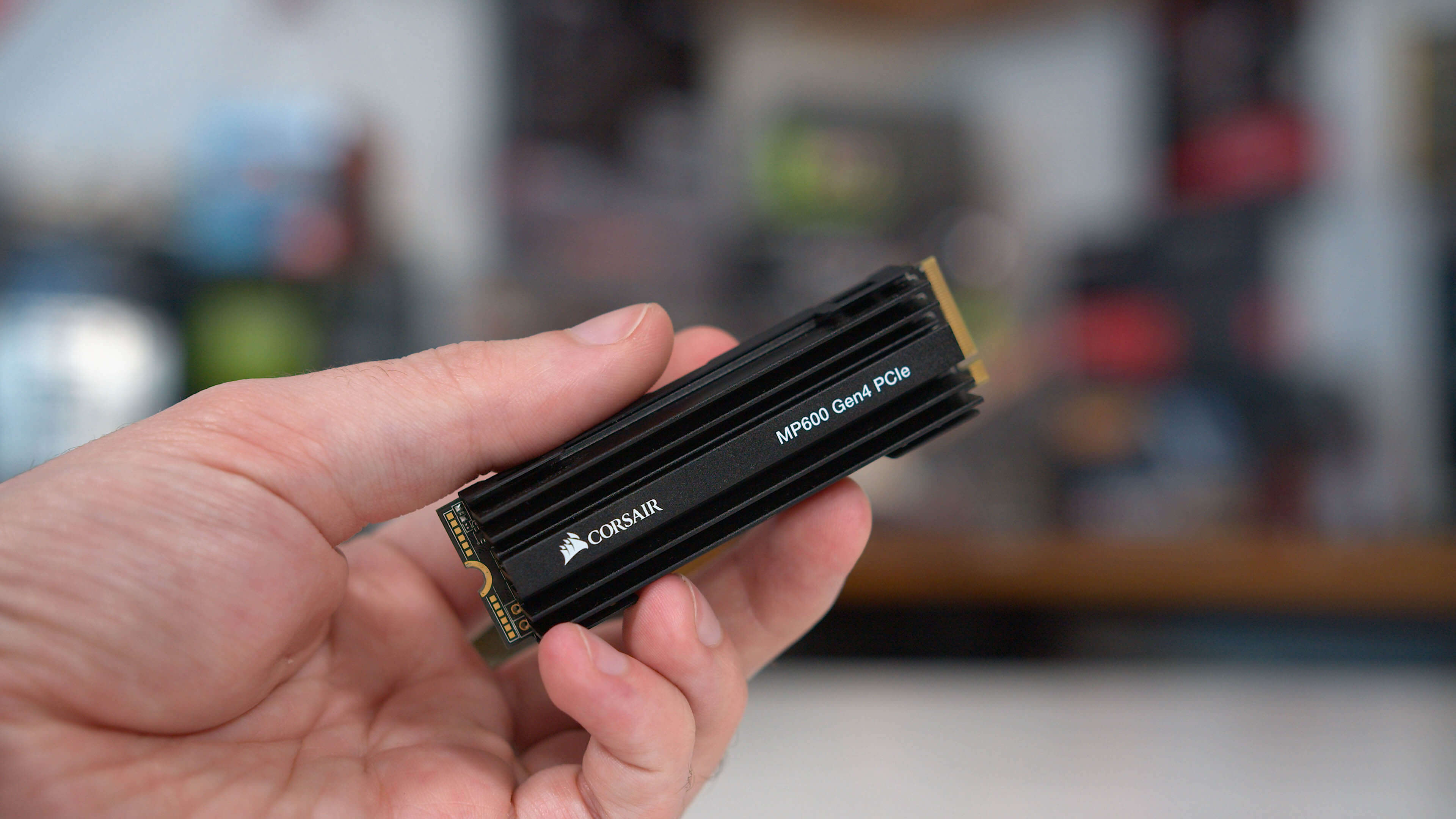Forward-looking: Corsair recently teased a PCIe 5.0 NVMe SSD that can reach sequential speeds of up to 10,000 MB/s. These numbers are giving users a glimpse into the near future of PCIe and NVMe storage as the launch of AMD Ryzen 7000 and Intel Raptor Lake processors loom, equipped with support for these PCIe 5.0 storage drives.
It would be an understatement to say that SSD technology has improved significantly over the last couple of decades. Less than 15 years ago, a 120GB SATA III SSD would have run you close to $350. Nowadays, $350 can potentially get you upwards of 4TB worth of SSD storage, while also performing nearly 12x faster than old SATA SSDs; those speeds are all thanks to the power of PCIe lanes and NVMe ports. In fact, NVMe drives have seen major improvements in even less time.
Just three years ago, the first PCIe 4.0 NVMe drives hit store shelves, boasting blistering speeds of up to 7,000 MB/s. And while these speeds are impressive, Corsair decided to shake things up and break through the four-digit ceiling. Images revealed info regarding Corsair's upcoming MP700 PCIe 5.0 NVMe SSD, which claim the drive can reach speeds of up to 10,000 MB/s in sequential reads, and 9,500 MB/s in sequential writes.

Corsair boldly states to "say goodbye to loading screens," just to really emphasize how fast these drives can be. The chart shows the MP700 having sequential read speeds that are 40% faster than the PCIe 4.0 supported MP600 Pro XT, as well as 180% faster sequential read speeds compared to the PCIe 3.0 supported MP510. To put it into perspective, Corsair's MP510 shows on the graph above was released less than four years ago.
Just think about loading 10GB of data in one second. Twenty years ago, hard drives with anything above 10GB of total storage were hot commodities, but now, you could hypothetically load every bit of data on one of those 10GB hard drives in just one second. However, there needs to be emphasis on the word "hypothetical."
It is worth noting that while sequential speeds for storage devices are amazing numbers to look at, they are not entirely representative of real world speeds that users can expect from day-to-day usage of their drives. That is not to say that Corsair's MP700 will be "slow," but we may still be waiting for real-world speeds that reach those 10GB/s numbers that Corsair is boasting. Regardless, the eventual reviews for this drive, as well as other competitors, will certainly be nothing short of impressive to see once consumers can finally get their hands on PCIe 5.0 SSDs.
It's also fair to assume that these SSDs should be available in the near future, with Ryzen 7000 series processors expected to release in September, and Intel's Raptor Lake expected to follow shortly after in October. With both platform having confirmed PCIe 5.0 support, manufacturers will certainly be ready to make these available as soon as possible, just as we saw with PCIe 4.0 drives just three years ago.
